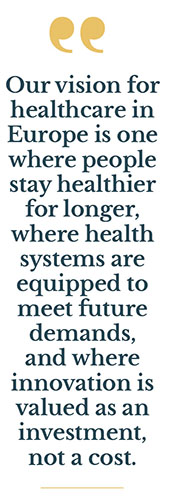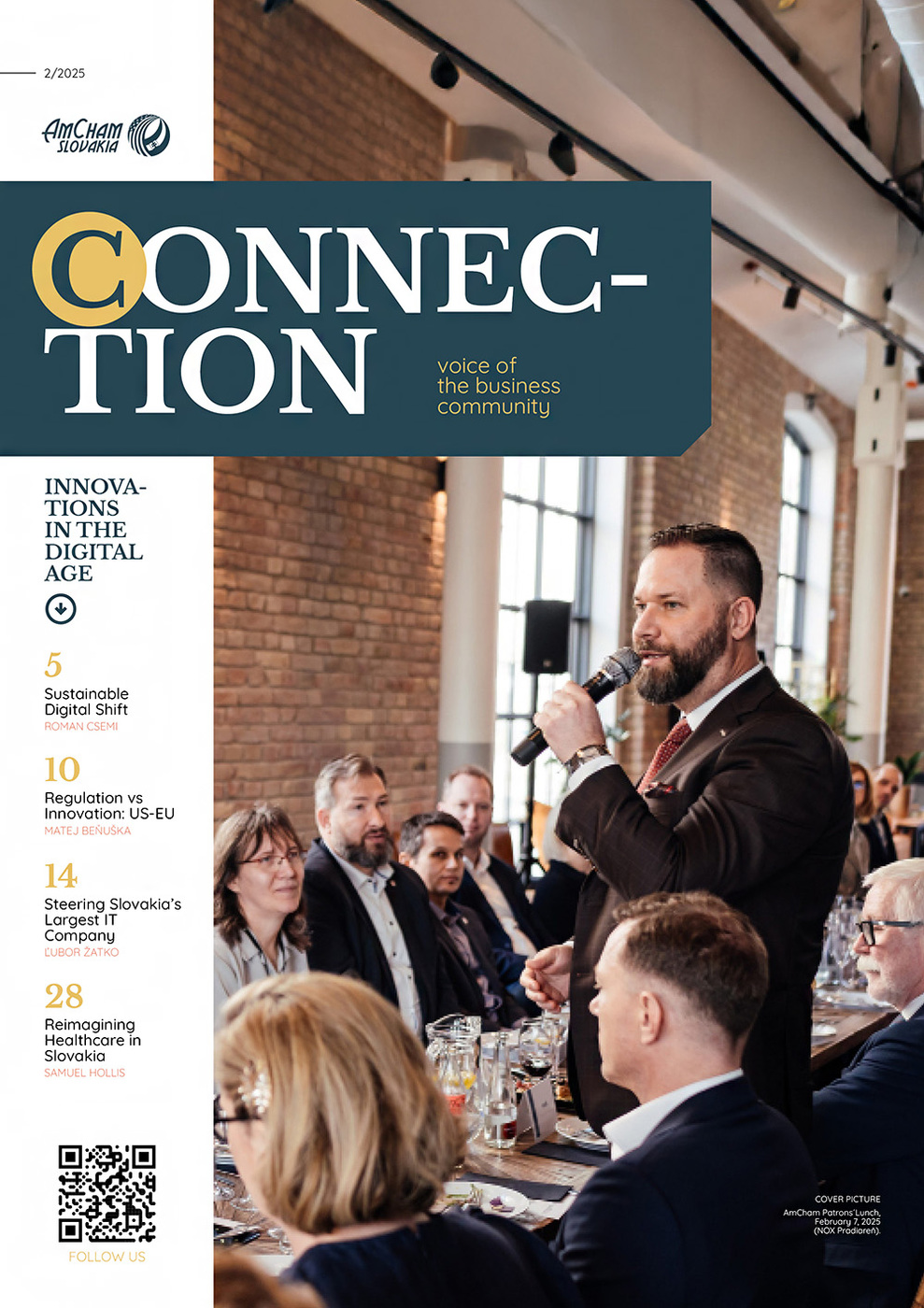We envision people living longer, healthier, and more active lives — supported by scientific and technological advancements that improve the entire patient journey, from diagnosis to treatment and monitoring. We imagine a more sustainable, efficient and advanced healthcare system that will be able to respond to the evolving needs of citizens. The key question is: How do we get there? Integrated Healthcare Solutions: The Next Frontier
Integrated Healthcare Solutions: The Next Frontier
In healthcare, medicines will increasingly be complemented and augmented by multiple solutions combining two or more dimensions along the continuum of patient care including for example, a drug, and a device, such as a companion diagnostic; next-generation sequencing (NGS) or a drug delivery system; prognostic / predictive biomarkers; and digital health technologies (DHTs), including clinical decision support tools, remote patient monitoring, apps, or wearables.
These interventions — spanning the entire patient journey from diagnosis to post-treatment care — hold the promise of delivering not only more holistic, connected care but also significant efficiencies for healthcare systems. The adoption of new technologies in medical research and clinical practice provides an unprecedented opportunity to support care pathways and redefine how we deliver treatments to individual patients. However, these innovations known as integrated healthcare solutions also introduce complexity and regulatory challenges that need to be addressed.
Healthcare as an Investment in the Future
Our vision for healthcare in Europe is one where people stay healthier for longer, where health systems are equipped to meet future demands, and where innovation is valued as an investment, not a cost. Achieving this vision means detecting, diagnosing and treating health conditions much earlier, effectively, and efficiently. It means using the full potential of technology to predict and diagnose diseases before they develop and intervene as early as possible. It means unlocking the power of clinical, genomic, real-world, and patient-generated data to make health systems more sustainable and bring breakthrough scientific innovations to more patients faster.
- Clinical data from electronic h (EHRs) and medical imaging to improve diagnostic accuracy and treatment health records decisions.
- Genomic data to enable personalized medicine by identifying genetic markers associated with disease risk and treatment response.
- Real-world data (RWD) from wearables, patient registries, and insurance claims to track long-term treatment outcomes and support regulatory decisions.
- Patient-generated health data (PGHD) from mobile health apps and remote monitoring devices to enable proactive and preventive care.
- AI-driven analytics to integrate and interpret these data sources, providing actionable insights for clinicians and policymakers.
By leveraging these diverse data streams, we can enhance early detection, tailor treatments to individual needs, and optimize resource allocation across healthcare systems.
Health and Economic Growth: A Symbiotic Relationship
Strong and growing economies are built on the foundation of healthy, productive populations. There is increasing evidence that improved health significantly contributes to economic growth, and innovative medicines play a crucial role in keeping people healthy, employed, and engaged in society.
Economic growth is vital for building a sustainable future, while ensuring healthier aging helps reduce the burden on healthcare systems. We must recognize that healthcare and innovative treatment solutions are not merely expenditures — they are strategic investments in human and economic prosperity.
Regulatory Challenges in a Rapidly Evolving Landscape
As integrated healthcare solutions continue to emerge, combined with the accelerating pace of innovation, regulation often remains undefined and unpredictable. Assessing these solutions will introduce new complexities, necessitating the development of regulatory capabilities and infrastructure to keep pace with change. The convergence of medical research and digital technology is diversifying the components of healthcare solutions, requiring regulatory frameworks that can accommodate evolving digital data and analytics-driven healthcare ecosystems.
Preparing for Tomorrow’s Innovations Requires Action Today
The transition to smart, integrated healthcare solutions is not just an option — it is a necessity. Over the next decade, both current and future treatments have the potential to revolutionize the way we manage chronic diseases and address productivity and economic challenges.
This transformation requires governments and healthcare systems to recognize the broader value that innovative medicines bring to society and the economy. It also calls for leaders in healthcare to make the necessary investments today so that health systems are prepared for the innovations of both today and tomorrow.
Elizabeth Capon, General Manager, Roche Slovensko



Follow us